Notice:
This event occurs in the past.
Forum Lecture: Building Postcarbon Futures: Land, Justice and the Energy Transition
Monday, March 2, 2026 from 6:00 pm to 7:30 pm
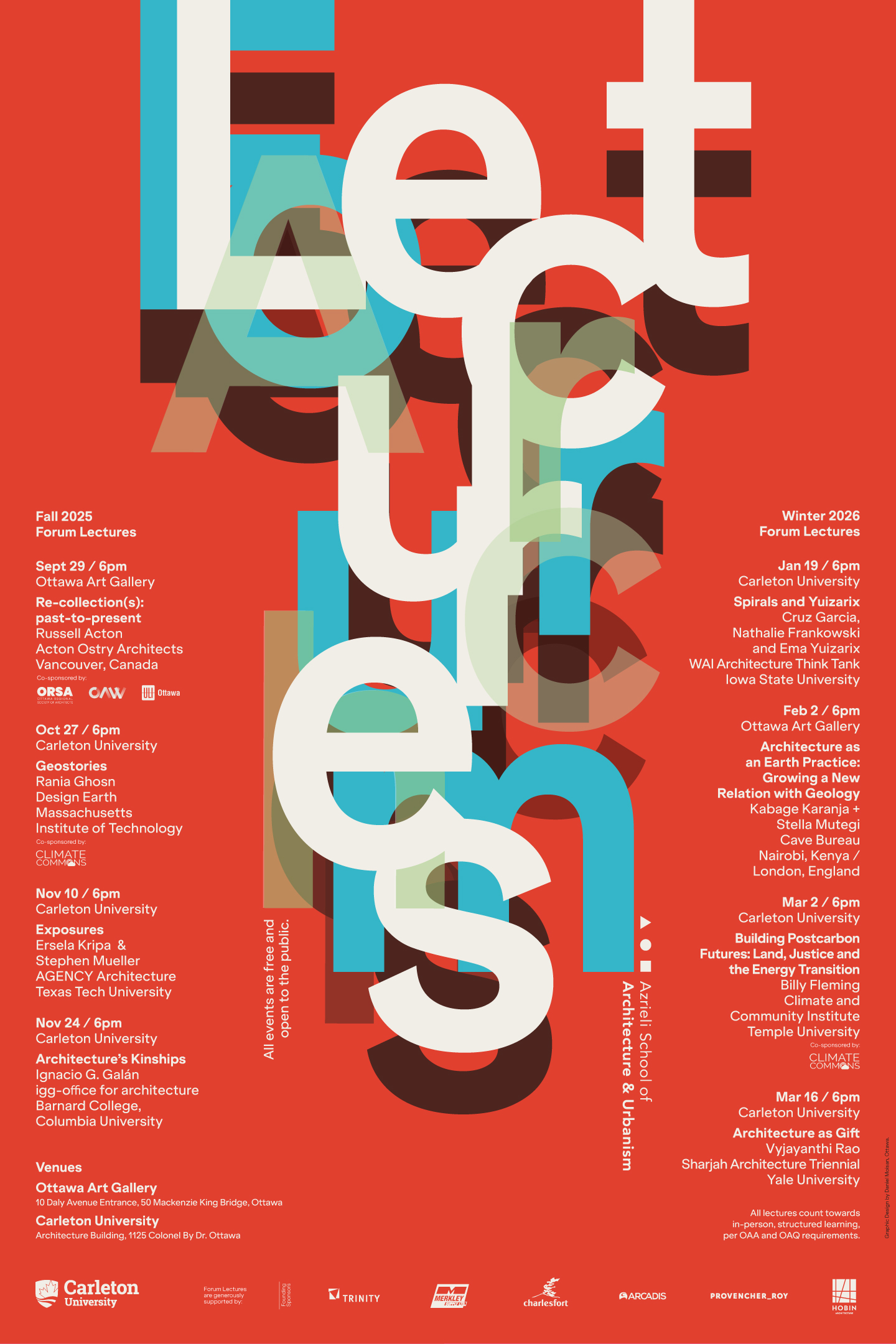
- In-person event
- The Pit, Architecture Building, Carleton University
- 1125 Colonel By Drive, Ottawa, ON, K1S 5B6
2025-2026 Forum Lecture Series
Speaker: Billy Fleming, landscape designer, city planner, and climate activist, Temple University, USA
Free and open to the public
Presented by the Azrieli School of Architecture & Urbanism, with support from Carleton Climate Commons
What would a postcarbon future look like? How would a more just, decarbonized world require us to change the way we live? What would it take to build this world? These questions lie at the heart of Billy Fleming’s new book, Building Postcarbon Futures: Land, Justice, and the Energy Transition (Lincoln, 2026).
This lecture takes readers through the North American tallgrass prairie restoration efforts of the Blackfeet Confederacy, the sprawling Gobi Desert surrounding the Ningxia Agrivoltaics project in China, the industrial-scale carbon dioxide removal plants in Iceland’s geothermal landscape, the Indigenous-led wildfire management efforts in Northern Australia, and other exemplary works of climate justice spanning 43 nations and six continents.
Together, these projects foreground the overlooked tactics, strategies, and modes of practice being employed, often by marginalized peoples, to build a more just, decarbonized world — from Cuba to Kiribati, Borneo to Berlin, Savannah to Sao Paolo.
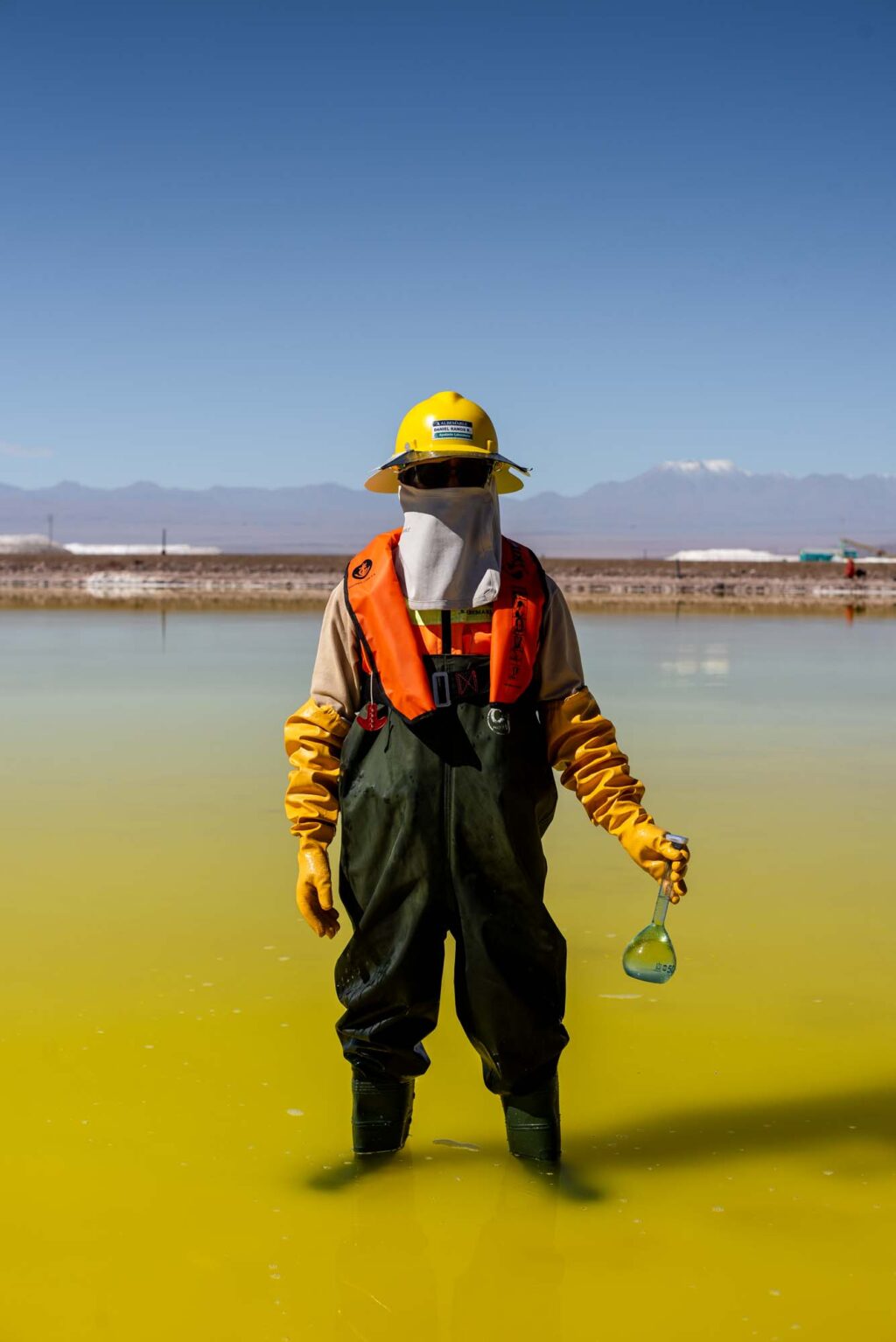
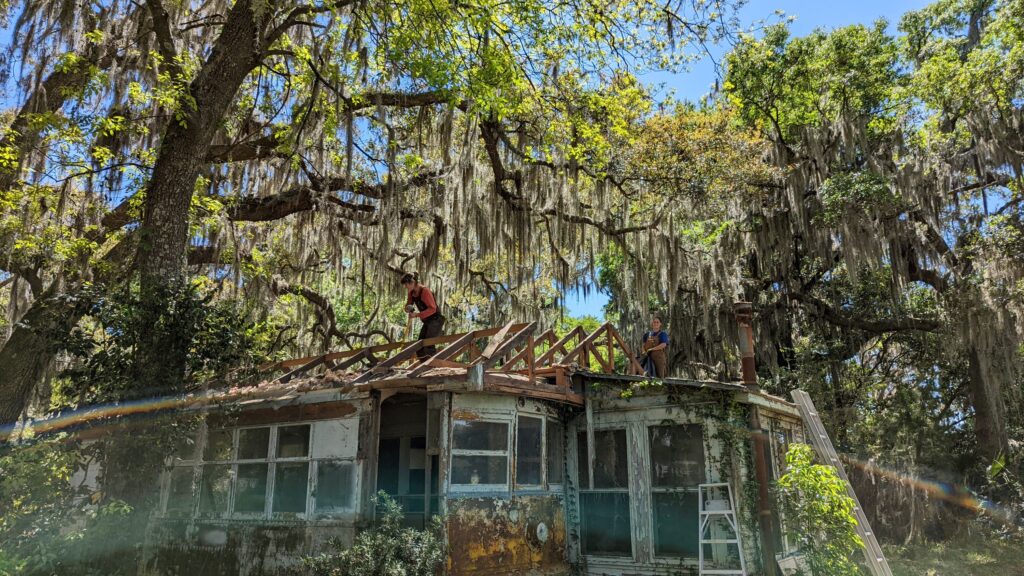
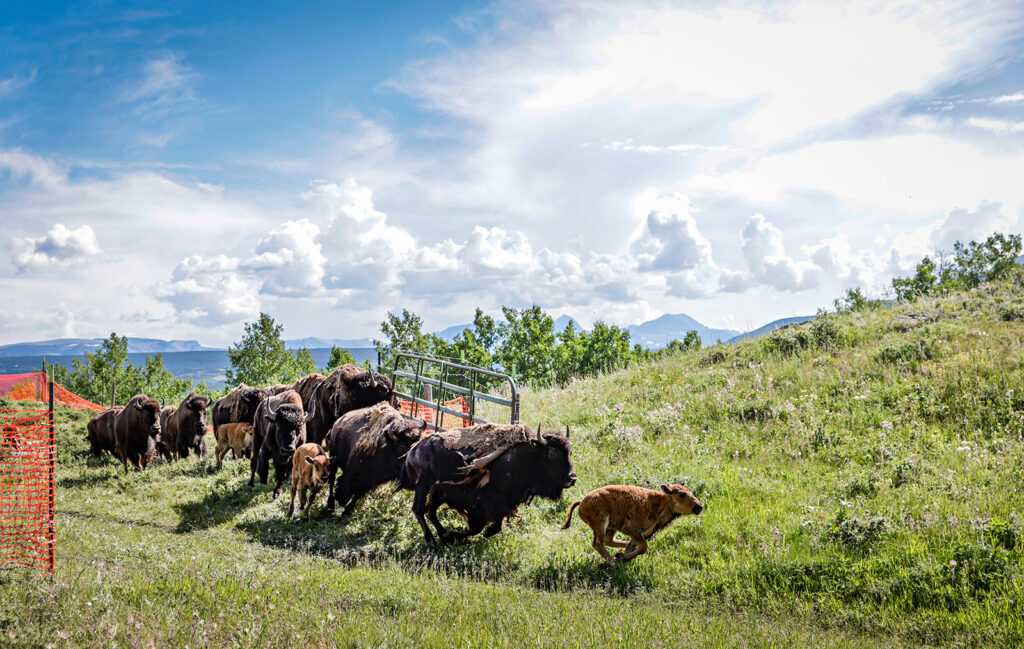
About Billy Fleming
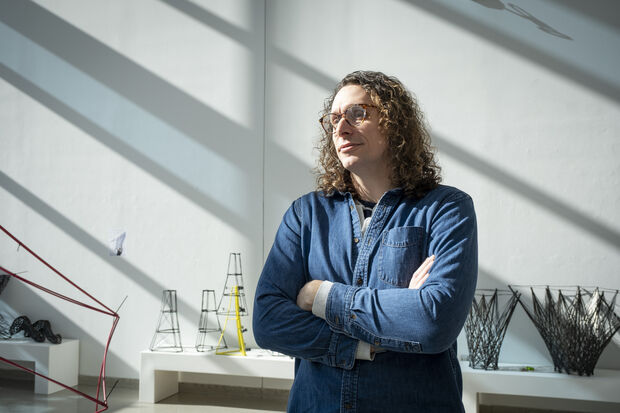
Billy Fleming is a landscape designer, city planner, and climate activist who currently serves as an assistant professor at Temple University in the Tyler School of Art and Architecture in Philadelphia, PA, USA.
Fleming is an interdisciplinary scholar of climate justice and the built environment and founding co-director of the Climate and Community Institute, a progressive think-tank focused on climate and political economy.
His research focuses on clean energy supply chains, social and abolitionist movements in rural landscapes, land-based practices of carbon management, and the communities transformed by each.
He also co-led the creation of Data Refuge — an international consortium of scientists, programmers, archivists, librarians, and activists dedicated to securing critical environmental data at the risk of erasure during the first Trump Administration — and co-founded Indivisible — a progressive organizing non-profit with chapters in every congressional district in the United States.